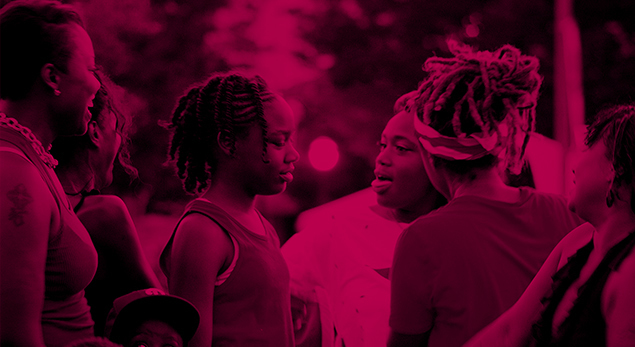Race and Healthcare
June 19, 2020

Social and Racial Determinants of Health
Recent social movements, including Black Lives Matter and the murders of George Floyd, Breonna Taylor and Ahmaud Arbery, amongst countless other Black people, have shined a light on the imbedded racism and inequality that Black people have had to endure. These inequities are especially present in the healthcare system where Black individuals are more likely to die at earlier ages from all conditions, including but not limited to stroke, diabetes, high blood pressure and pregnancy. Black people are less likely to receive adequate care and are more likely to live in areas without access to health services.
“I can’t tell you how many family members I’ve had who felt intimidated when going to the doctor,” says Ekua Mends-Aidoo, equity & inclusion officer at Evergreen Health. “It’s almost like it’s a one-sided conversation verses a collaborative approach to your overall health. It will be based on what the doctor thinks.”
Mends-Aidoo says that a recent example of how race can affect health is COVID-19. Black people are disproportionately affected by Coronavirus, with higher incidents of infection and higher death rates. Because Coronavirus is more likely to hit people with pre-existing conditions harder and Black people are less likely to receive sufficient healthcare, therefore more likely to develop serious conditions, the rates of death are highest with Black people in the US. “Black and Brown communities are predisposed to die a higher rate at this point. The social determinants of health—access to doctors, environmental factors, education, economic background, safety–make someone of color more likely to die from contracting COVID than anyone else,” says Mends-Aidoo.
Evergreen’s Response
Evergreen Health and affiliate organization, Community Access Services, opened a drive-through COVID-19 testing site at 3297 Bailey Ave in May. This resource is geared toward the 14215 area, or Buffalo’s East Side, which has been disproportionately affected by Coronavirus. It is open to everyone and the cost is covered by insurance healthcare plans, including Medicaid and Medicaid Managed Care Plans with no out-of-pocket costs or co-pays. Those interested in testing should call 716-847-2441 and select option 7 to set up a time to get tested.
Majority Leader Crystal People-Stokes stated, “The only way we can curb the virus’ spread is by practicing social distancing guidelines and aggressively testing. Now, thanks to Evergreen Health and Community Access Services and Millennium Collaborative Care, testing is available. Please stay healthy, stay safe and stay blessed. Get tested.”
Ekua Mends-Aidoo agreed, “We know that underserved populations, including communities of color, have been especially impacted by this unprecedented crisis. Beyond just making tests available, it’s making tests accessible where we can truly make a difference. While we’ve been able to continue to provide critical services to our patients throughout this global pandemic, we’ll now be able to medically serve more than just the people who already know about Evergreen and CAS, and in a zip code and its surrounding community that need us most.”
Community Access Services is a non-for-profit organization committed to addressing the epidemic of HIV and other diseases that challenge the health and welfare of urban communities in Buffalo and Erie County. They offer comprehensive care services, including prevention education and treatment. For more information, visit their website or call 716-852-5969.
Evergreen Health’s mission is to foster healthy communities by providing medical, supportive and behavioral services to individuals and families in Western New York – especially those who are living with chronic illness or who are underserved by the healthcare system. Explore our website for more information about our programs and services or call us at 716-847-2441.
If you need a COVID-19 test, call us at 716-847-2441 and select option 7.